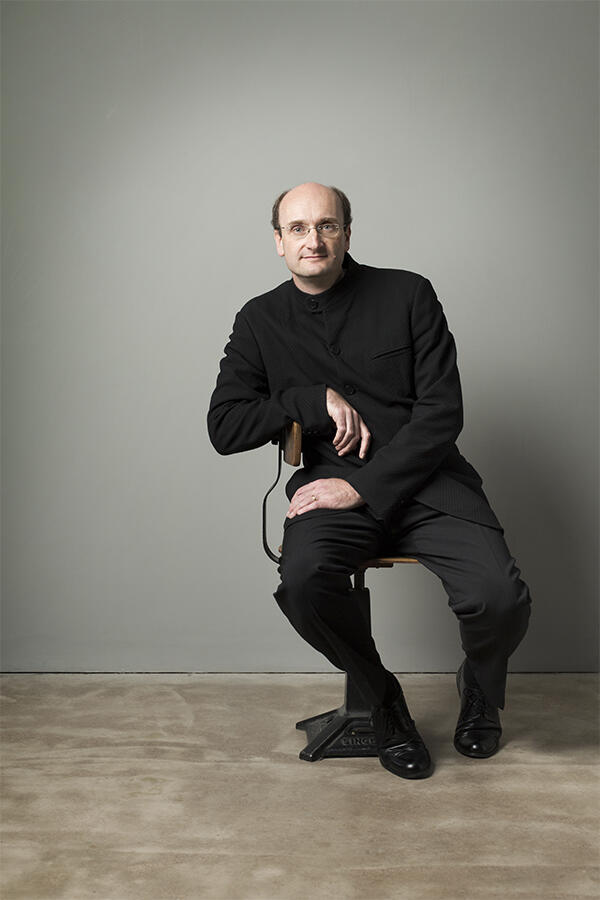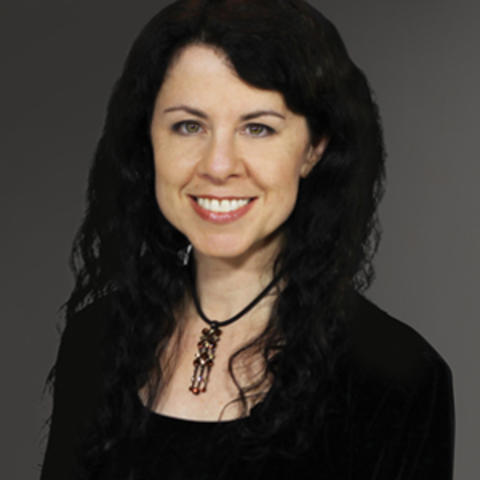
Section Branding
Header Content
'I don’t think we should be stuffy.' Meet conductor Andrew Manze
Primary Content
LISTEN: At heart, conductor Andrew Manze just wants to hear music, make music, share it, tell stories about it, and let people clap whenever they want. He speaks with GPB's Sarah Zaslaw.

You might expect Andrew Manze to be a bit of a music snob. After all, following his studies at Cambridge University, he jumped to attention as a preeminent Baroque violinist and is now well into his second musical career as an award-winning conductor.
But no, Manze is anything but snobby. At 60, he bubbles with the same infectious love of classical music that grabbed him as a kid. At heart, he just wants to hear music, make music, share it, tell stories about it, and let people clap whenever they want. He also wishes all young people could have the same chance to play in youth orchestras that he had growing up in central England. As a friend of his once said, “I don’t need drugs; I’ve got Brahms.”
In April, Andrew Manze revisited Georgia to conduct the Atlanta Symphony Orchestra in a juicy program of music by Khatchaturian, Sibelius and Borodin. Between concert days he stopped by GPB to chat with Sarah Zaslaw, and you can hear their conversation and that performance this week on The ASO on GPB.
Interview Highlights
On the Atlanta Symphony
When I first met the orchestra, I instantly thought, wow, what a spirit they have. … They just sort of blew me away in their expression and the beautiful musicmaking. So when the idea came to come back, I said, "Yes yes yes, please."
On speaking to the audience
I find it breaks down barriers, and I like to share things that I find interesting about the music with the audience, and also with the orchestra. It then binds us all together with a common image when we start listening. … I always think about my mother in this moment. She's not a trained musician at all, and I always think about her and what would help her understand a piece of music.
On Borodin and show biz
When they made the musical Kismet in the 1950s, on Broadway, they used lots of melodies by [Alexander] Borodin, and it won a Tony Award for best musical in 1954. I was very amused to think that actually it was down to Borodin’s music. He’d died 60-something years before! And then it tickled me that in 1984, when Amadeus, the movie about Mozart, won [the Academy Award for] best movie, Mozart didn't win best score. So that puts Borodin ahead of Mozart, one–nil to Borodin, which I think is quite funny. I think Borodin would laugh as well.
On clapping between movements
Some people ask, “Does it bother you?” Not at all. It means people are engaged. … I'm so happy people are there to share music. For me, they could do anything. They could, if they want to, comment or talk or dance or whatever. … I don't think we should be stuffy about when is the right time to clap. Come on, there's more to life than that.
On the importance of youth orchestras
I think it's so important that we support the young people and give them that opportunity. I'm not saying that they might become professionals in future. It's not about that at all. It's something I never forgot, a friend of mine, he was playing the double bass, and he said to me, “I don't need drugs, I've got Brahms.” And I just thought that sums it up. It sort of helps you, it gives you something in life which is so positive, a nice experience playing music with other people.
On the classics/classical connection
I went to university and studied classics, Latin and Greek, which I still am happy I did. It still enriches my life … the way of thinking. You can imagine that looking at the ancient world, you're trying to reconstruct the whole world from fragments of information. It's exactly the same as a musician. You open the musical score and it only can give you a hint of what the piece of music can sound like. The rest is your instinct.
On his career evolution
It feels very natural. I got into early music when I was at university, I met friends and I got into this Baroque thing and that gave me a fantastic repertoire grounding. … And then, if you can imagine a violinist, their right arm is bowing up and down, backwards and forwards. And the conductor's right arm is beating time. They're very related. My career — this is sounding a bit pretentious now — is, in microcosm, the development of conducting. I went from leading orchestras from the violin, and then especially when I was dealing with singers, they weren't so comfortable to follow a bow arm — they wanted a beat — so I then went into beating, and I then slowly put the violin down. And so that's how I became a conductor.
On making recordings
You have this microphone in front of you and I imagine lots of people stuffed inside that microphone. Some musicians find it hard to get inspired, but I found it really exciting that there might be hundreds, thousands, maybe tens, hundreds of thousands of people inside that microphone. …
People talk about, maybe it's a snapshot of what you're doing, but no, I see it as like a portrait. If you imagine in the old days, you posed for a portrait; you chose what you would wear and what you were holding. …It's bit like that making a recording. It's a way of presenting how you believe the music should be.
The hard thing is to create something that sounds alive. In the old days they used to collect, catch butterflies — certainly in Victorian England they did — and then they'd pin them to a board. Well, I hate that idea, a butterfly pinned. You want a butterfly flying around. So to get that in a recording is really difficult, especially with an orchestra. You're doing it for the fifth time and you're saying to an orchestra, “Please, let's try and feel the freshness of how it was to do it that very first time.”
On choosing between takes
I did a lot of playing with my dear friend and colleague Richard Egarr, and when we did the Corelli sonatas, for example, we would do a whole movement. Especially the slow movements give a lot possibility to improvise and embellish the line. We would do a version, and then we'd do another version, and then the producer would simply say, “There's no way I can edit between these two because you're telling a different story. So you just have to choose.” Sometimes it was rather painful to say, "OK, we'll jettison that one, it was really wonderful, but we'll keep this one."
On the conductor’s role
In the end, most of what you're doing on stage is about instinct and dealing with an orchestra where you have — like this week with Atlanta, we've got 70, 80 musicians on stage, who all have a very refined and strong musical instinct themselves. And so you're dealing with how to help all these musicians combine their instinct into one performance, so you're not getting, as it were, musical arguments on stage.
On flexibility within unity
As a violinist, I know how it is to sit in an orchestra. The risk is you feel in it, as a string player, you’re locked into a group, you have to do what the group does. … I've said to them, "Look, this is such expressive music; do your own vibrato, your own fingerings," which means choose your own way of sliding around. We're all working very closely together, but we're like a flock of birds, which are floating around, flying around, all aiming in the same direction, but there is freedom within that flock.
On being the center of attention
I conduct, and I love it, but it's because of the music. I remember one of my earliest conducting experiences, I did Handel's Messiah. You work so hard with that piece, all the little pieces, the parts of it, you put it together, and we did it. And then in the concert, we got to the final “Amen” and I realized, "Oh heavens, everyone's looking at me!" … Because they all were waiting for me to show where is the last “Amen.” You'd think I'd have worked this out, but I hadn't. I suddenly thought, "Oh goodness, I’m not sure I like that!"


